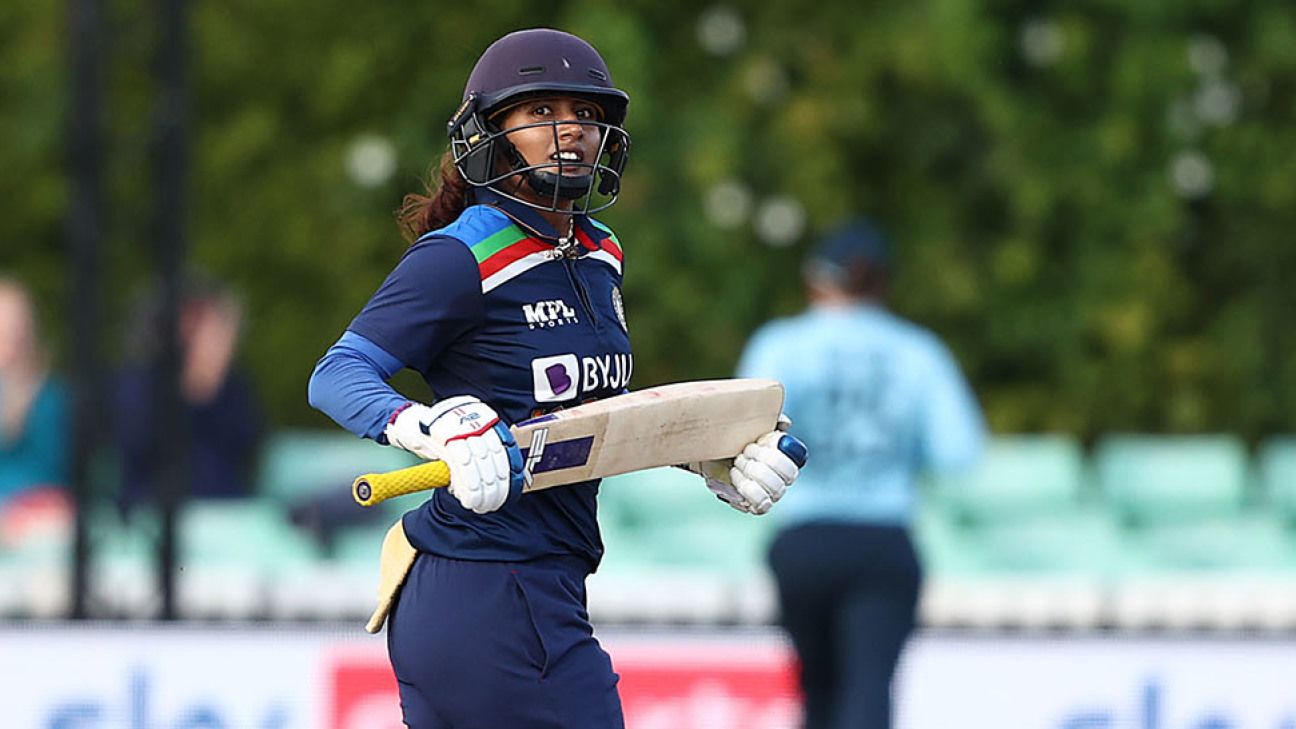“Today it is even more important to have them around traveling with the team with longer durations of quarantines and bio-bubbles”
ESPNcricinfo understands Mumbai-based sports psychologist Dr Mugdha Bavare, who has previously worked with Mumbai Cricket Association and the Bengal Ranji team, is currently in New Zealand with the women’s team. India are set to play one T20I and five ODIs ahead of the 50-over World Cup scheduled to begin on March 4 in the country, which means they are expected to spend nearly two months away from home as a result. Raj feels that while every player has their own ways to deal with the pressures of the game, having a professional guiding them individually has helped them handle situations better.
“I think every individual has their own way of absorbing pressure, coming out and playing their best cricket,” Raj said ahead of the solitary T20I. “Having a sports psychologist traveling with the team this time around helps. She has one-on-one sessions with the players to give them more time to understand how to deal with their pressures and find ways that they can absorb and play their best cricket.
“In today’s time, it is even more important and helpful to have them around traveling with the team with longer durations of quarantines and bio-bubbles. Unlike before where we get into the World Cup directly we have a series where the tour is extended for two months. It does help to have a one-on-one session with them because you see things in a very different perspective and that clearly helps you understand your own self to find your own ways. Everyone has different ways of dealing with pressures and quarantine times, to have somebody address those issues is always helpful – a more professional support.”
“Workload is in our minds but having said that rather than seeing two months if you look at the games we are getting it could be around five-plus or nine or 10 of the world cup games. We do have a couple of more seamers in the side so we’ll see how we can give them an opportunity. Workload is secondary right now but getting them to bowl in these conditions is important so that’s where they need that game time to get on to the field and get two-three games to get used to the conditions.
“[We’re] looking to give game time to the core players. It’s important that each and every one of them find their rhythm before the world Cup. that’s what every team would want to do, find their composition and their core so they can prep for the World Cup.”
“I played my first World Cup way back in 2000 in New Zealand. I remember when we had a session in Christchurch in Lincoln University, that’s where we played the World Cup. I couldn’t play the entire world cup because I was down with typhoid in 2000 but this time around we are looking forward to see that India does well than what we did in that edition. We bowed out in the semi-finals.. but yes the team has done well in the last year, we lost a couple of bilaterals but the way the team has unified to perform well with some of the young players with experience. I’m sure the team with unite to put forward our best cricket.”
Sruthi Ravindranath is a sub-editor at ESPNcricinfo
